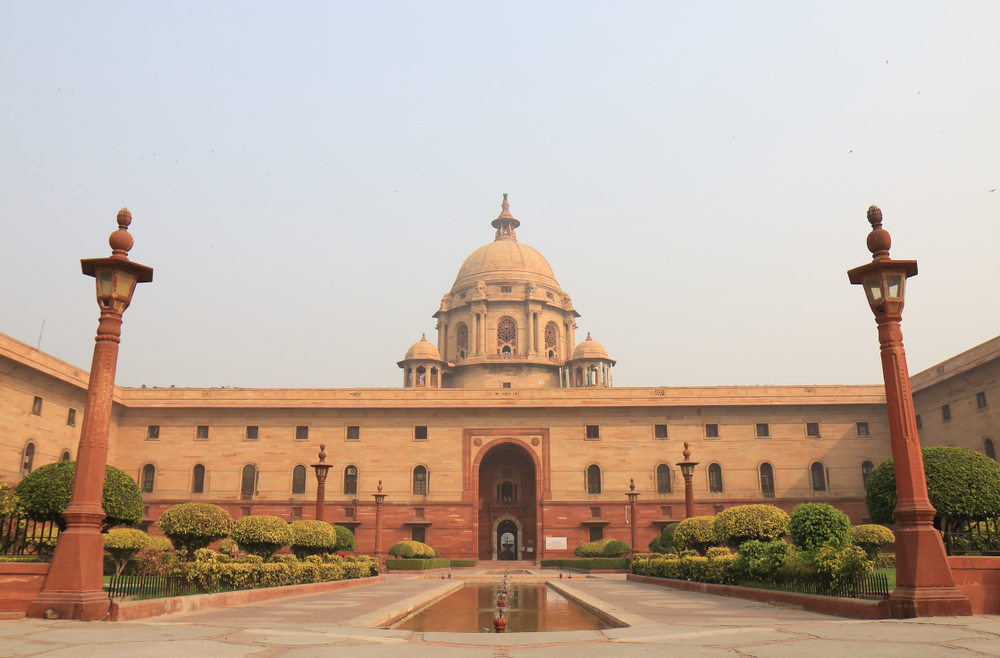
After the 2nd phase of India's nationwide lockdown was announced by Prime Minister Narendra Modi in a video message on 14th April 2020, giving effect to the lockdown till 3rd May 2020 and a limited opening up of certain commercial activities in selected districts of the country after 20th April (subject to conditions), the Union Ministry of Home Affairs (MHA) issued an order today allowing specific additional activities in areas that have not been identified as 'containment zones or hotspots' of the COVID-19 outbreak by the respective state/union territories or district administrations.
This order has been supplemented with revised consolidated guidelines further issued by MHA, clearly highlighting what is allowed and not allowed in the country during this phase of lockdown. Furthermore, these guidelines also delineate the activities allowed in containment zones/hotspots and those that will be allowed from 20th April.
According to these guidelines, the prohibited activities include:
Travel by air, rail and road; operation of educational and training institutions; industrial and commercial activities; hospitality services; all cinema halls, shopping complexes, theatres, etc., all social, political and other events, and opening of all religious places/ places of worship for members of public, including religious congregations.
Activities with national guidelines to be followed include:
Compulsory home-made face covers at work places and in public places, strong hygiene and health care measures like provision of sanitisers, staggered shifts, access control, thermal screening and imposing fines for spitting etc. wherein penalties will be imposed for violation.
However, the activities permitted under the revised guidelines from 20th April will not be allowed within the containment zones marked by states/ UTs/ district administrations, as per the guidelines of Ministry of Health & Family Welfare (MoHF&W). In these zones, no unchecked inward/outward movement of population would be allowed, except for maintaining essential services, i.e., medical emergencies and law & order duties, and government business continuity.
With districts having large numbers of COVID-19 infections, or identified as hotspots or containment zones, there will be very strong containment measures undertaken by the government authorities to curb the spread of the virus; only essential services are to be permitted in these zones and strict perimeter control and strict restrictions on movement enforced.
For activities that will be permitted after 20th April, National Directives for COVID-19 management have been laid down, which shall be enforced by the District Magistrates through fines and penal action as prescribed in the Disaster Management Act, 2005.
These activities include:
Transportation of goods will be permitted without any distinction of essential or non essential. Farming operations, including procurement of agricultural products, agriculture marketing through notified Mandis and direct and decentralized marketing, manufacture, distribution and retail of fertilizers, pesticides and seeds; activities of marine and inland fisheries; animal husbandry activities, including the supply chain of milk, milk products, poultry and live-stock farming; and tea, coffee and rubber plantations as well as Industries operating in rural areas, including food processing industries; construction of roads, irrigation projects, buildings and industrial projects in rural areas; works under MNREGA, with priority to irrigation and water conservation works; and operation of rural Common Service Centres (CSCs) have all been allowed.
Manufacturing and other industrial establishments with access control have been permitted in SEZs, EoUs, industrial estates and industrial townships after implementing the SOP for social distancing. Manufacture of IT hardware and of essential goods and packagings are also allowed. Coal, mineral and oil production are permitted activities.
At the same time, the important components of the financial sector, such as RBI, banks, ATMs, capital and debt markets as notified by SEBI and insurance companies will also remain functional. E-commerce operations, operations of IT and IT enabled services, data and call centres for government activities, and online teaching and distance learning are all permitted activities now. All health services and the social sector to remain functional; public utilities to function without any hindrance; the supply chain of essential goods to operate and important offices of central and state governments and local bodies to remain open with the required strength.
It is to be noted, however, that these guidelines have been issued keeping in mind the health of the critical sectors of the Indian economy and thus, strict protocols and enforcement will be done to prevent the spread of COVID-19 in these sectors as well as in the country.
#Covid_19







